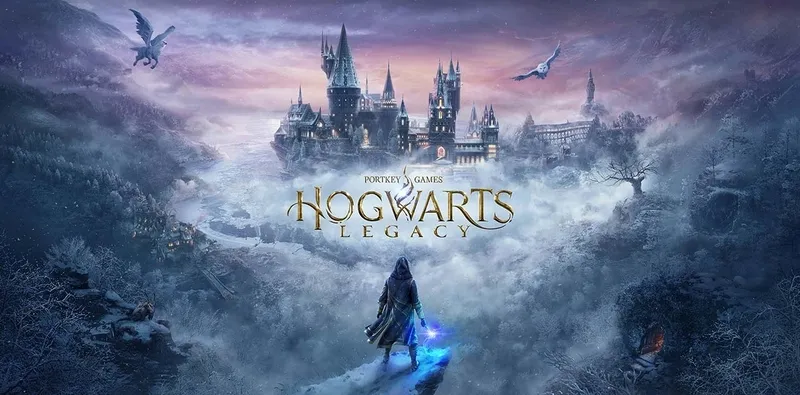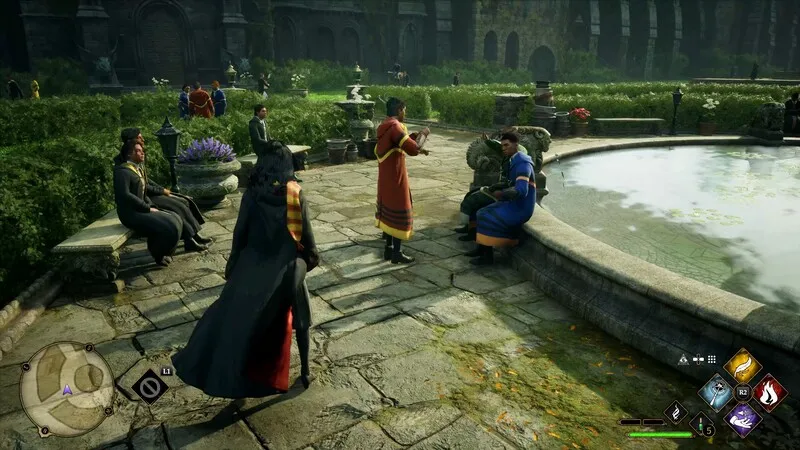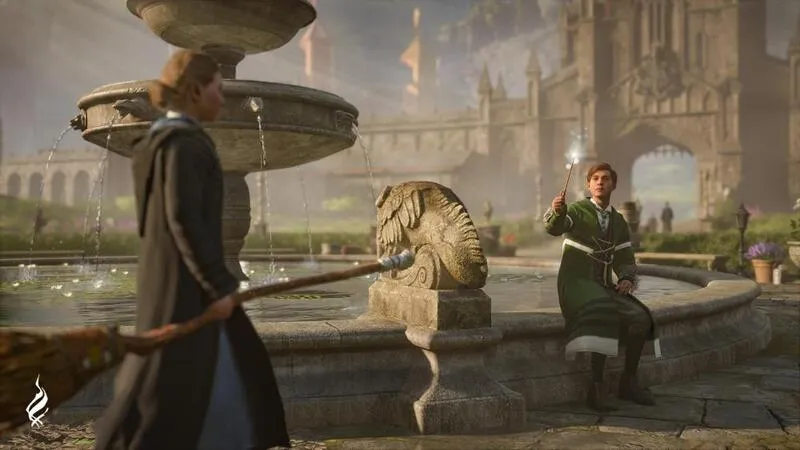When Hogwarts Legacy launched in 2023, fans finally received what they had long dreamed of: an open-world RPG set in the wizarding world. For the first time, players could walk the halls of Hogwarts, attend classes, tame magical beasts, and chart their own magical destiny. But with this newfound freedom came a deeper, more complicated question: how much freedom should players really have in a world so tightly defined by lore?
At the heart of this discussion lies a fascinating tension. On one hand, the game thrives when it empowers players to live their own wizarding story. On the other, that same freedom sometimes undermines the logic of the Harry Potter universe — allowing actions, spells, and outcomes that would never fly in J.K. Rowling’s original canon. This article dives deep into that dilemma: freedom versus lore consistency in Hogwarts Legacy.
1. The Promise of Player Freedom
From the beginning, Hogwarts Legacy markets itself as the ultimate wizarding sandbox.
- You can pick your house freely.
- You choose your spells and combat approach.
- You explore Hogwarts, Hogsmeade, and the Forbidden Forest at your pace.
This freedom was revolutionary compared to scripted movie tie-ins of the past. But in granting players so much autonomy, the game immediately raised questions of lore alignment.
2. Lore Consistency in the Wizarding World
The Harry Potter universe is one of the most meticulously defined fantasy settings in modern fiction.
H3: Core lore elements players expect
- Unforgivable Curses: Forbidden, with severe moral and legal consequences.
- House identity: Each house represents a clear archetype.
- Wizarding law: Ministry of Magic rules govern magical society.
When Hogwarts Legacy deviates from these norms, it risks alienating lore purists who expect canonical consistency.

3. The Unforgivable Curses Debate
Perhaps the most contentious issue in Hogwarts Legacy is the use of Unforgivable Curses: Avada Kedavra, Crucio, and Imperio.
- Freedom side: Players love the ability to wield these powerful spells, fulfilling a dark wizard fantasy.
- Lore side: In canon, casting these spells even once should mark the player forever — with Azkaban as the likely outcome.
The lack of narrative consequences creates a jarring dissonance between gameplay freedom and lore fidelity.
4. House Identity and Player Choice
Choosing a house is central to the Hogwarts experience, yet in Hogwarts Legacy, the impact is minimal.
H4: Issues of house representation
- Limited differentiation: Beyond some dialogue and common room aesthetics, houses barely matter.
- Lore dissonance: A Gryffindor can act ruthlessly without consequence, while a Slytherin can be altruistic without pushback.
- Missed opportunity: Stronger house-based storylines could have deepened immersion.
Here, freedom dilutes the meaning of one of the wizarding world’s most iconic systems.
5. Morality Systems and Their Absence
Unlike RPGs such as Mass Effect or KOTOR, Hogwarts Legacy lacks a morality meter.
- Freedom benefit: Players aren’t punished for experimenting with all spells.
- Lore drawback: The absence of consequence undermines the moral framework established in the books and films.
Without morality mechanics, actions like using Avada Kedavra on a goblin rebellion leader carry no weight beyond gameplay convenience.
6. NPC Reactions and World Response
A world feels alive when NPCs respond meaningfully to player behavior.
- Current issue: Whether you save villagers or terrorize enemies with dark arts, NPCs largely treat you the same.
- Lore expectation: A known Dark Wizard at Hogwarts would face expulsion, if not worse.
- Immersion gap: The static world response makes freedom feel hollow.
The lack of dynamic consequences leaves players questioning whether their choices matter at all.

7. Exploration Freedom vs. Lore Constraints
Exploration is one of Hogwarts Legacy’s greatest strengths. Players can roam far beyond Hogwarts, discovering caves, trials, and magical beasts.
But lore purists argue that students at Hogwarts wouldn’t have this level of autonomy. Sneaking out at night was a huge deal in the books — yet here, players are practically night rangers with no repercussions.
This is another point where freedom trumps lore consistency.
8. Balancing Gameplay Fun and Canon Rules
From a game design perspective, there’s a delicate balance to strike.
- Too much realism (strict curfews, harsh punishments) could make the game restrictive.
- Too much freedom risks breaking immersion for fans who know the world inside out.
This balance defines whether the game feels like a living part of the wizarding world — or just a fantasy playground.
9. The Role of Mods and Player Creativity
Interestingly, the modding community has stepped in to “fix” some of these issues.
H3: Popular mods
- Morality mods: Introduce consequences for using Dark Arts.
- House overhaul mods: Make houses more distinct in gameplay.
- NPC behavior mods: Add reactions to player choices.
Mods highlight both the hunger for deeper lore fidelity and the flexibility of player-driven freedom.

10. The Future of Hogwarts Legacy and Its Dilemma
Looking ahead, the freedom vs. lore debate will likely shape sequels or expansions.
Possible directions:
- Branching morality paths: Dark wizard route vs. heroic route.
- House-specific story arcs: Greater differentiation and replayability.
- Dynamic NPC responses: Reactions based on player reputation.
- Canon-sensitive restrictions: Soft limits on Unforgivable Curses without total removal.
The question is not whether freedom or lore should win, but how the two can coexist.
Conclusion
Hogwarts Legacy succeeds in making players feel like they belong in the wizarding world. Yet its very strength — freedom — is also its greatest weakness when it undermines the carefully built lore of the Harry Potter universe. By giving players limitless options without narrative consequences, the game sometimes feels at odds with its own source material.
Still, the joy of exploring Hogwarts, casting spells, and living one’s wizarding dream outweighs these flaws for most players. The next evolution of the series may lie in harmonizing freedom with lore consistency, creating an experience that is both true to canon and uniquely the player’s own.

















